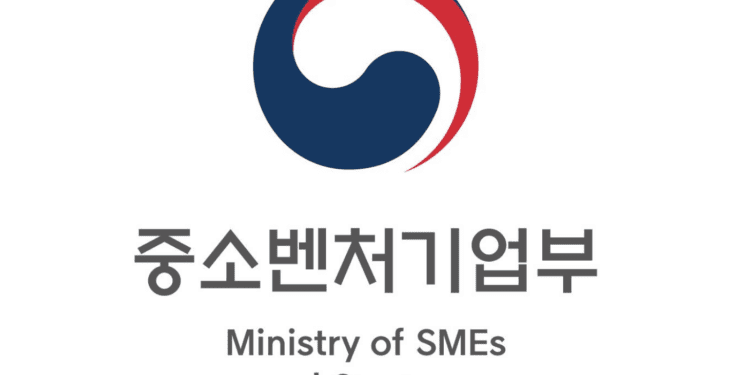The South Korean Ministry of SMEs and Startups (MSS) has unveiled its ambitious budget plan for 2025, marking a significant commitment to fostering the innovative growth and global expansion of small and medium-sized enterprises (SMEs), venture businesses, and startups. The Ministry of SMEs and Startups (MSS) announced that it will prepare a budget plan for 2025 of KRW 15.292 trillion (USD 11.5 billion), an increase of KRW 342.3 billion (USD 31.6 million)(increase rate of 2.3%) compared to the original budget for 2024 (KRW 14.9497 trillion/USD 10.4 billion), and submit it to the National Assembly on September 3.
Strategic Focus on Innovation and Recovery
The 2025 budget plan is crafted around five core investment areas, each designed to address the current and future challenges faced by SMEs and startups, while also laying the groundwork for sustainable growth and global competitiveness. These areas include the
- creation of an innovation ecosystem,
- globalization,
- regional and manufacturing innovation,
- revitalization of SMEs and commercial districts,
- and sustainable growth.
The 2025 budget plan for the Ministry of SMEs and Startups focuses on supporting the innovative growth and global leap of small and medium-sized enterprises and venture and startups, which are the future growth engines of the economy. In addition, it focuses on overcoming the management crisis of small business owners who are experiencing more difficulties than during the COVID-19 crisis due to the burden of high prices and high interest rates and on providing solid support for their recovery.
Innovation Ecosystem: Cultivating Deep-Tech Startups
A cornerstone of the budget is the focus on nurturing deep-tech startups, particularly in fields such as artificial intelligence (AI) and semiconductors. Recognizing the fierce global competition in these sectors, MSS aims to accelerate the development of next-generation growth engines by expanding the “Super-Gap Startup 1000+ Project” to support over 500 companies by 2025. This initiative will include tailored support programs for AI and system semiconductor startups, leveraging partnerships with both domestic and international large corporations.
Additionally, the ministry plans to enhance open innovation through collaboration between the public and private sectors, providing commercialization, verification, and sales channel support to startups. A significant new initiative is the plan for introduction of legal support services to help startups navigate the regulatory challenges that often hinder the commercialization of new technologies.
Venture Investment: Encouraging Private Sector Participation
The MSS is also focused on fostering a venture investment ecosystem driven by private capital. The government plans to increase its investment in the mother fund, specifically through the “Startup Korea Fund,” which aims to mobilize private investments from the financial sector and large corporations. This fund will target key investment areas such as Startup Korea, Global, and M&A, with an expanded budget of KRW 500 billion for 2025. The Ministry will also focus on expanding investment in innovative startups in key investment areas such as Startup Korea, Global, and M&A and to expand the growth momentum of regional startups.
Key Highlights of Ministry of SMEs and Startups 2025 Budget Plan
R&D and Globalization: Paving the Way for Global Expansion
Research and development (R&D) will remain a critical component of the government’s strategy, with a shift towards supporting innovative SMEs in national strategic technology fields, including AI, advanced biotechnology, and carbon neutrality. The TIPS program, which follows a private-led model where private investment precedes government support, will see expanded backing, particularly for companies that have gained global market traction.
On the globalization front, the MSS is committed to securing new export opportunities for SMEs. For the first time, the budget will include support for the export of tech services, including cloud computing and data center usage. The Ministry will expand the scale of dedicated loans to support continuous scale-up of promising export companies and high-growth companies by approximately KRW 0.2 trillion compared to the previous year.
The budget for the global corporate collaboration program that supports open innovation between global corporations and K-startups has been expanded. This year, leading global AI companies such as OpenAI and Intel have joined, bringing the total number of global corporations participating in the program to 11. In 2025, MSS aims to discover additional global corporations to collaborate with the increased budget to expand the scope of collaboration for promising new industries.
Regional and Manufacturing Innovation: Strengthening Local Economies
The MSS’s budget plan also emphasizes regional innovation and manufacturing, aiming to create environments where local SMEs can thrive. The “Legend 50+” project, a new local growth model, will receive increased funding, and the ministry plans to select additional global innovation special zones to support the global expansion of local companies. Also, the Ministry will activate local startup clusters by expanding the operation of startup-centered universities with excellent local young talents and technologies
In manufacturing, the focus will be on digital and AI-driven innovation. The budget for smart factory support will be expanded, with new initiatives aimed at establishing autonomous factories that incorporate advanced AI and 3D technology. The ministry will also increase the number of regional specialized manufacturing AI centers to boost the productivity of local manufacturing SMEs.
Supporting Small Business Owners: Overcoming Crises and Promoting Growth
Small business owners, particularly those struggling with high prices and interest rates, are another priority in the 2025 budget. The MSS has introduced measures to alleviate the financial burden on small businesses, including temporary support for delivery and courier expenses and increased policy loans. In addition, as small business owners are still having financial difficulties due to the continued high interest rate trend, the scale of policy loans for small business owners has been planned to 3.8 trillion won, which is about 60 billion won more than this year. The refinancing loan (refinancing high-interest loans of 7% or more to low-interest loans) being promoted this year will be supported next year as well.
The refinancing of high-interest loans will continue, and new funds will be made available to businesses facing difficulties due to rising raw material costs. Small business owners who are experiencing management difficulties due to rising raw material prices will also be able to receive temporary management difficulty funds starting next year.
In addition, the Hope Return Package, which assists small business owners in closing their businesses and transitioning to new opportunities, will receive a significant budget increase. The package will now include expanded support for store demolition costs and specialized employment programs linked to the National Employment Support System. The support for store demolition costs next year has been expanded to a maximum of 4 million won (previously 2.5 million won), and new features include specialized employment programs linked to the National Employment Support System, and close support from PMs dedicated to re-establishment.
There will be a budget for entrepreneurial small business owners that supports innovative businesses with growth potential. In addition, a new budget for the private sector to directly discover promising small business owners and provide close 1:1 support to increase opportunities for small business owners to strengthen their digital capabilities.
The new budget plan includes promoting consumption in local alley shops and traditional markets. The government will promote a collaborative structure in which private commercial district planners take the lead in planning and local governments, related ministries, etc. support each other. Meanwhile, next year’s Onnuri gift certificate budget will reduce operating expenses and commissions, while increasing the budget for discounts compared to this year, and will issue approximately 5.5 trillion won of Onnuri gift certificates.
Sustainable Growth: Building a Foundation for the Future
The final pillar of the budget plan is sustainable growth, with initiatives designed to help SMEs scale up and improve their structures. The “Jump-up” program will provide comprehensive support for promising SMEs, including matching them with private sector experts and linking them to policy funds. The budget will also support the preemptive structural improvement of SMEs, ensuring that those with growth potential can overcome temporary crises and achieve long-term success.
Furthermore, the budget introduces new measures to promote mutual growth between SMEs and large corporations, including a mutual growth cooperation fund and a mutual growth network loan program. These initiatives aim to foster collaboration on challenging issues like environmental, social, and governance (ESG) practices, ensuring that both SMEs and large corporations can thrive together.
Minister of SMEs and Startups Oh Young-joo said, “Ahead of next year’s budget formation, we have re-examined existing projects from scratch and boldly restructured similar, overlapping, and underperforming projects.” She added, “We will ensure that detailed and thorough financial investment is made to support the innovative growth and global leap forward of SMEs, ventures, and startups, as well as to overcome the management crisis of small business owners and provide solid support for their revival.”
Keep tab on latest news in the Korean startup ecosystem & follow us on LinkedIN, Facebook, and Twitter for more exciting updates and insights.






